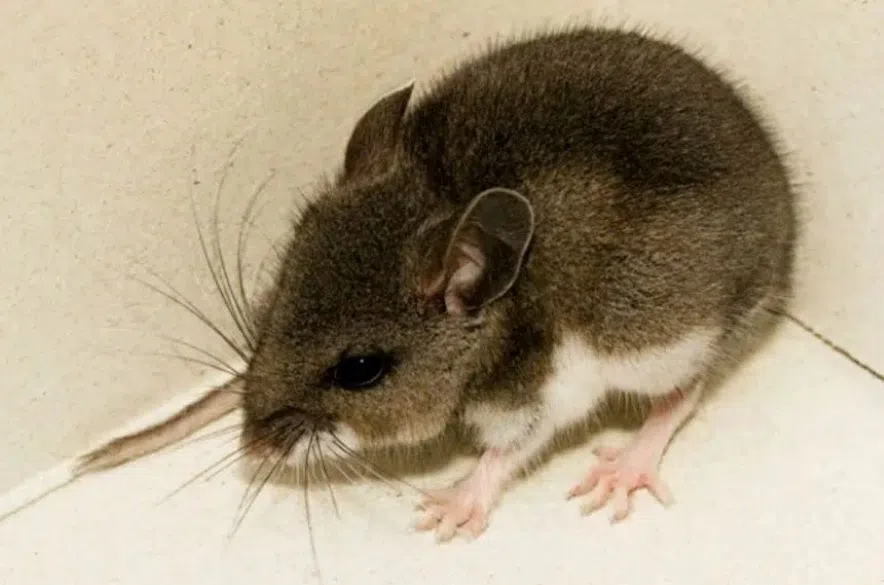Saskatchewan’s Ministry of Health is reminding spring cleaners to be aware of the risk of hantavirus while working in enclosed spaces.
According to a release from the ministry, hantavirus is caused by breathing in airborne particles that are contaminated by the droppings, urine or saliva of deer mice.
The particles can lead to a rare but possibly fatal lung disease called hantavirus pulmonary syndrome.
The ministry said that between 1994 and 2023, 38 cases of hantavirus pulmonary syndrome were reported in the province, and 13 of those had a fatal outcome.
Dr. Julie Kryzanowski, Saskatchewan’s deputy chief medical health officer, explained that exposure is most common while cleaning sheds, barns, garages, cabins or cars after the winter months.
“Particles can become airborne after sweeping, but it’s also possible to get the virus by touching something that has been contaminated, and then touching your nose, mouth or eyes,” Kryzanowski said in a statement.
The ministry said symptoms typically develop one to six weeks after exposure, and can include fever, achy muscles, cough, headaches, nausea and vomiting.
There are some simple steps that can be taken to reduce the risk from hantavirus.
The ministry recommended ventilating buildings by opening windows and doors for at least 30 minutes before cleaning and avoiding dry cleaning methods such as dusting and sweeping in favour of wet mopping methods while wearing rubber or plastic gloves. Goggles and a well-fitting N-95 filter mask can help reduce the risk while cleaning areas contaminated by droppings, the ministry added.
Any mouse droppings should be dampened with bleach disinfectant and removed with a damp mop or cloth, the ministry said. Furniture in those areas should be steam cleaned, shampooed or sprayed with detergent, disinfectant or a bleach mixture, and exposed clothes and bedding should be washed with detergent in hot water.
The ministry also recommended preventative methods to keep deer mice out of enclosed spaces. Those steps include blocking any openings that a mouse could use to enter, storing any food, water and garbage in pest-proof containers with tightly sealed lids, and moving woodpiles or other places where mice like to hide away from homes.
More information on hantavirus can be found on the provincial government’s website.







